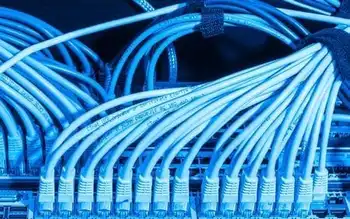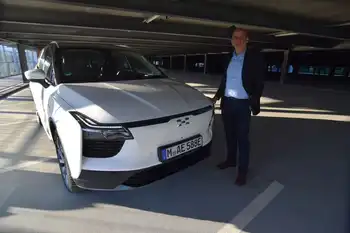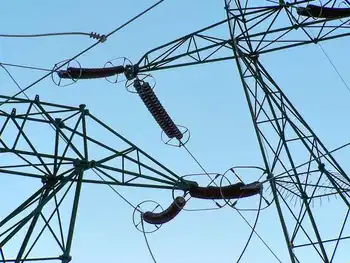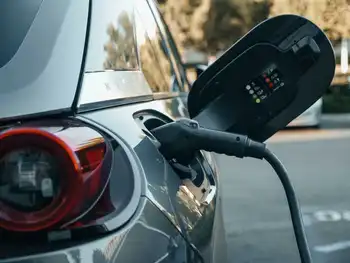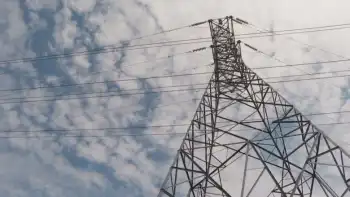P.E.I. government exploring ways for communities to generate their own electricity
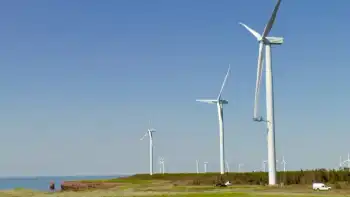
Protective Relay Training - Basic
Our customized live online or in‑person group training can be delivered to your staff at your location.

- Live Online
- 12 hours Instructor-led
- Group Training Available
P.E.I. Community Energy Independence empowers local microgrids through renewable generation, battery storage, and legislative reform, enabling community-owned power, stable electricity rates, and grid-friendly distributed generation across Island communities with wind, biomass, and net metering models.
Key Points
A program enabling communities to generate and store renewable power under supportive laws and grid-friendly models.
✅ Legislative review of Electric Power and Renewable Energy Acts
✅ Community microgrids with wind, biomass, and battery storage
✅ Grid integration without raising rates via Maritime Electric
The P.E.I. government is taking steps to review energy legislation and explore new options when it comes to generating power across Island communities.
Energy Minister Steven Myers said one of those options will be identifying ways for Island communities to generate their own energy, aligning with a federal electrification study now examining how electricity can reduce or eliminate fossil fuels.
He said the move would provide energy independence, create jobs and economic development, and save the communities on their energy bills, as seen with an electricity bill credit in Newfoundland that eased costs for consumers.
But the move will require sweeping legislative changes, that may include the merging of the Electric Power Act and the Renewable Energy Act, similar to an electricity market overhaul in Connecticut seen in other jurisdictions.
Myers said creating energy independence should ensure a steady supply of electricity while also ensuring costs remain reasonable for P.E.I. residents, even as a Nova Scotia electricity rate hike highlights regional cost pressures.
"We have communities that are looking to generate their own electricity for their own needs," said Myers, adding the province will not dictate what energy sources communities can invest in.
He also said the province wants to find new community-based models that will complement existing services.
"How do we do that in a way that we don't impact the grid, that we don't impact the service that Maritime Electric is delivering, mindful of a seasonal rate backlash in New Brunswick that illustrates consumer concerns, that we don't drive up the rates for all other Islanders."
Last fall, a group of P.E.I. MLAs traveled to Samsø, a small Danish island, where they learned about renewable and sustainable energy systems being used there.
The province is looking at storage options so it can store power generated during the day to be used in the evening when electricity use is at its highest. (CBC)
Samsø produces 100 per cent of its electricity from wind and biomass, and utilities like HECO meeting renewable goals early show how quickly transitions can occur. The P.E.I. government said the Island produces 25 per cent of its electricity from wind.
Following the trip, Myers said he was impressed by the control the island had over its energy production and would like to see if a similar model could work on P.E.I.
Myers said the legislative review will also look at different ways to store energy on the Island.
He said that will allow communities to sell that excess energy into the provincial electricity grid, and those revenues could be redirected into that community's priorities.
'For the survival and the future of their community'
"This is kind of a model that we had suggested that would be in place that would allow people in their own community to produce a revenue stream for themselves that they could then turn into projects like rinks, or parks, or tennis courts or whatever it is that community thinks is the most important thing for the survival and the future of their community," said Myers.
Energy Minister Steven Myers says creating energy independence could create a steady supply of electricity while also ensuring costs remain reasonable for P.E.I. residents. (Randy McAndrew/CBC)
The province said Maritime Electric, Summerside Electric and the P.E.I. Energy Corporation will be involved in the review, recognizing that a Nova Scotia ruling on rate-setting powers underscores regulatory limits
Government also wants to hear from Islanders and will be accepting written submissions beginning Monday. Myers said the province is also planning to host public consultations, but because of COVID-19, those will be held virtually in mid-June.
Myers calls this a major move, one that will take time. He said he doesn't expect the legislation to be made public until the spring of 2021.
"I want to make sure we take our time and do the proper consultation."





